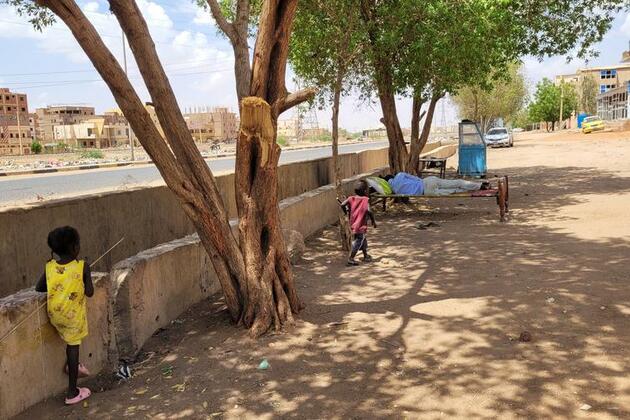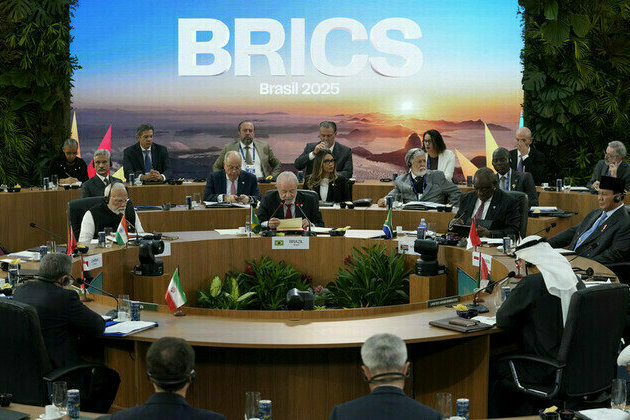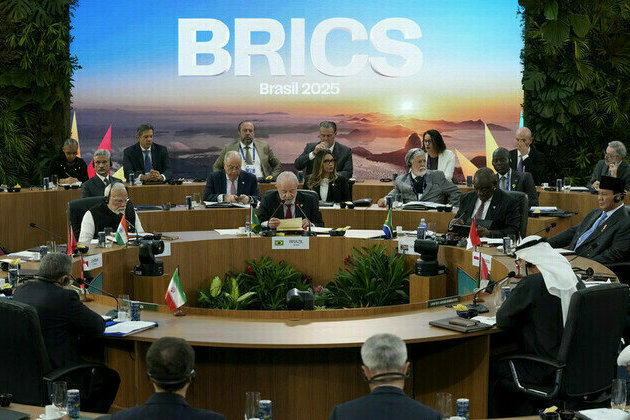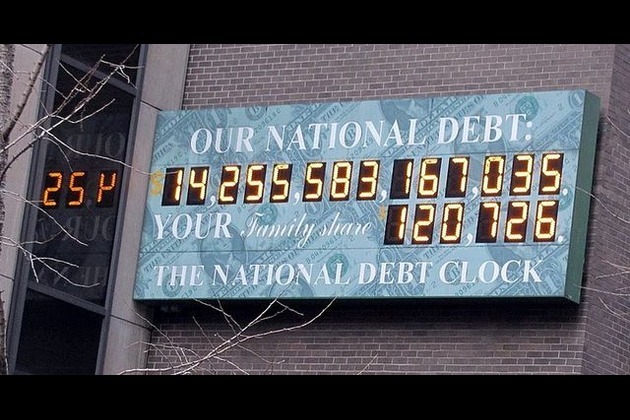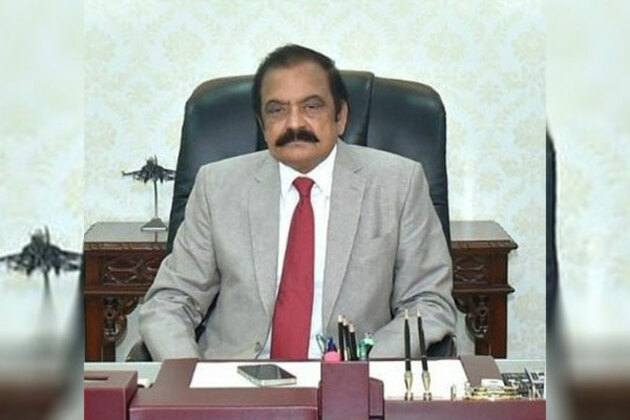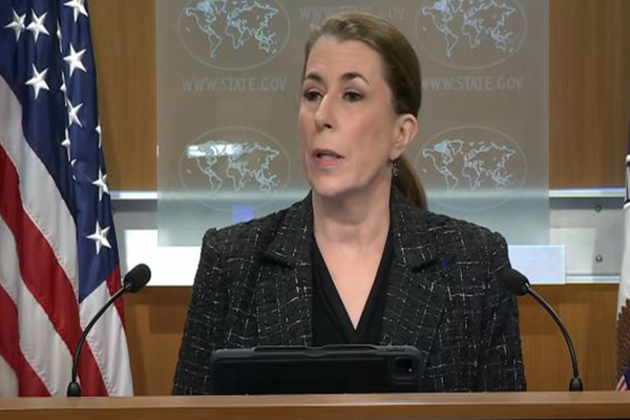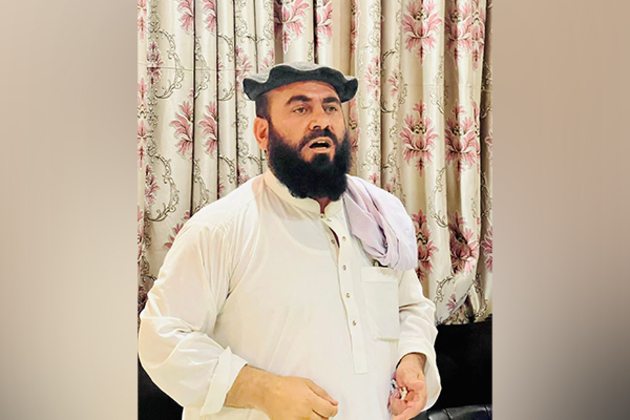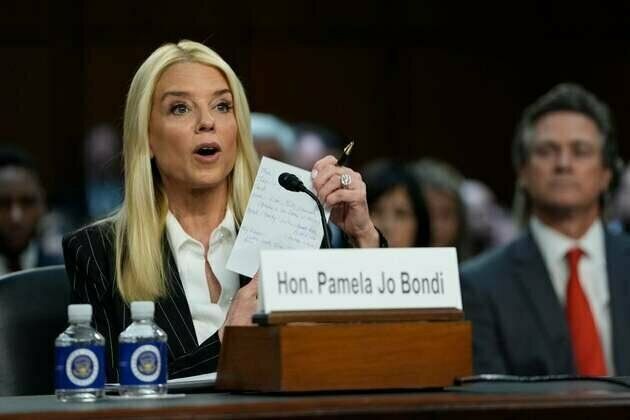First Person: fighting for women's financial freedom
United Nations
03 Mar 2021, 01:51 GMT+10
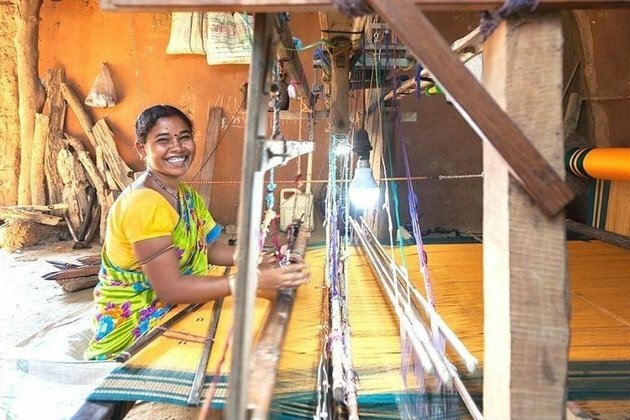
Around the world, the opportunities for women to lead successful, financially secure lives are being limited by government legislation, company policies and deep-rooted misogyny. The UN is leading efforts to give women more access to digital financial tools, seen as essential to playing a full part in the global economy.
In her role as a senior advisor at the UN Capital Development Fund (UNCDF), which makes public and private finance work for the world's poorest people, Nandini Harihareswara focuses on ensuring that more women are able to take advantage of digital finance, as a means of lifting them out of poverty.
Ms. Harihareswara spoke to UN News ahead of an online panel discussion, involving UNCDF, The World Bank and other partners, promoting financial equality for women, and International Women's Day, both held on 8 March.
"I would describe myself as a digital finance and inclusive digital economies professional who really cares about making sure the benefits of digital reach women. I come from a lower-middle class income immigrant family and I am first generation Indian-American. I grew up on a budget. But my dreams always bridged the two countries that defined my identity, the United States and India.
This quote from the Women and Money report, published by the Gates Foundation, says it best: "Money is the domain of men. Society doesn't view it as [a woman's] role to earn money, or her right to make financial decisions". This is true for many of the countries we work in.
The statistics show that, in so many ways, women and girls bear the brunt of the digital divide: they are 12% less likely to own a phone than men, 35% less likely to have internet access and 32% less likely to have access to energy. And, in least developed countries, women traditionally do not have access to the digital assets, collateral, networks, or financial services that can help them access the capital they need to start a business.
Not only are women less likely to own or have access to digital tools and money, they are less likely to have permission to use and control them: this is called "agency" in the gender space. "Gatekeepers" who can be fathers, brothers, mothers-in law or other community members, do not believe women should have access to a phone or a bank account.
Policy is also keeping women back: there are 115 economies where laws prevent women from running a business in the same way as men, and 167 countries that have at least one law restricting women's economic opportunity. On top of these challenges, most of the countries UNCDF works in do not mandate the use of sex-disaggregated data (i.e. data that identify whether the information concerns a man or a woman) in the private sector, which would encourage both the public and private sector to make data-based decision-making that can increase the number of women clients.
UN Women/Ryan BrownMartha Alicia Benavente, from Tucurú, a small municipality in Guatemala trained for six months to become a solar engineer.At UNCDF, we are finding many ways to raise awareness of these problems, and improve financial equality for women. For example, in Zambia we launched the "Sprint4Women" competition, in which digital finance providers tested their products and business models in the field, then pitched these models to the judges. UNCDF supported the finalists with technical assistance in design, digital finance and data analytics. The competition winner, a local fintech company, changed the way it marketed its products, and today their customer base is up more than 50 per cent, and the proportion of women clients has more than doubled.
Open digital payment systems can increase the access of women to financial services. In Papua New Guinea, we're working with a bank to help illiterate women access financial services. Before, they would use a scribble as a signature line, exposing them to fraud, but now they only need a fingerprint.
UNCDF is also providing this bank with finance, to offset the risk of making loans available for women. This has had a significant impact, with a 145 per cent increase in women microentrepreneurs taking loans, and a 66 per cent increase in customers saving with the bank.
UNCDFA market vendor uses the SafeBoda app which connects vendors to households using the SafeBoda transport service during the COVID-19 lockdown in Kampala, Uganda.A driving force for me since my early days as a development professional has been the impact of inclusive finance for women. Everywhere I've worked, from Haiti to the Philippines, Ghana, Zambia and India, I've seen with my own eyes the positive impact that digital finance and expanding digital and financial autonomy can deliver for women.
I'll never forget one of the first women I spoke to when I went to work for the UNCDF in Haiti, back in 2011, about the impact of being paid through mobile money. She said, "Before, I would have to carry cash. Everyone knew when I'd be paid, so often they would take my money from me. Now, no one knows when I have been paid and they cannot access the money. Even if my phone is stolen, my money is still safe."
But, 10 years on, the challenge of bringing more women into the digital economy is still with us and, of course, it has been exacerbated by COVID-19. Almost every study shows that the lives of hundreds of million women are getting worse, as they lose their jobs and slide back into poverty. We can't turn a blind eye to the threat of women becoming completely marginalized, of being digitally and financially "dark" for the rest of their lives."
 Share
Share
 Tweet
Tweet
 Share
Share
 Flip
Flip
 Email
Email
Watch latest videos
Subscribe and Follow
Get a daily dose of Kenya Star news through our daily email, its complimentary and keeps you fully up to date with world and business news as well.
News RELEASES
Publish news of your business, community or sports group, personnel appointments, major event and more by submitting a news release to Kenya Star.
More InformationAfrica
Section"Very bad sign of things escalating in Canada, Carney's first major test on security": Canadian journalist on Kap's Cafe attack
Vancouver [Canada], July 11 (ANI): Canadian journalist Daniel Bordman called the attack on a cafe owned by comedian Kapil Sharma a...
A glimpse into Sudanese life amid scorching summer heat
KHARTOUM, July 10 (Xinhua) -- It was 2 p.m. in a displacement camp on the outskirts of Port Sudan, where the relentless sun had already...
BRICS in Rio: From Global South to global power
The 17th BRICS summit was more than a photo op. It was a coordinated rejection of Western power and a declaration of intent A few...
What just happened in Rio should terrify the West
The 17th BRICS summit was more than a photo op. It was a coordinated rejection of Western power and a declaration of intent A few...
"Brian Lara told me that I should have tried to break record": Wiaan Mulder reflects
New Delhi [India], July 11 (ANI): South African all-rounder Wiaan Mulder has revealed that legendary West Indies batter Brian Lara...
International journalists explore development of China's Xinjiang
URUMQI, July 10 (Xinhua) -- A total of 24 journalists from 23 countries have participated in a media tour of northwest China's Xinjiang...
World
SectionUS debt limit raised, but spending bill fuels fiscal concerns
NEW YORK CITY, New York: With just weeks to spare before a potential government default, U.S. lawmakers passed a sweeping tax and spending...
Pakistan PM's aide Rana Sanaullah rejects reports of growing rift with PPP
Islamabad [Pakistan], July 11 (ANI): Pakistan Prime Minister's Adviser on Public and Political Affairs, Rana Sanaullah, has rejected...
"This doesn't happen in democracy": Imran Khan's ex-wife slams govt over threat to arrest her sons
Islamabad [Pakistan], July 11 (ANI): Former Pakistan Prime Minister Imran Khan's ex-wife, Jemima Goldsmith, has accused the government...
"Do not travel to Iran": US State Department warns Americans of travel risks
Washington, DC [US], July 11 (ANI): The US State Department has announced a new awareness campaign warning Americans, particularly...
Pakistan: ANP leader, police personnel shot dead in Khyber Pakhtunkhwa
Khyber Pakhtunkhwa [Pakistan], July 11 (ANI): Awami National Party (ANP) leader Maulana Khan Zeb and a police personnel were shot dead...
DOJ sues California over trans athlete participation
(Photo credit: Jack Gruber / USA TODAY NETWORK / USA TODAY NETWORK via Imagn Images) The Department of Justice followed through on...


